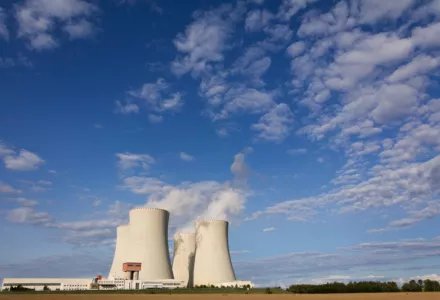Reimagining Nuclear Power Through Feminist Epistemologies
A Project on Managing the Atom (MTA) seminar with Denia Djokić, Postdoctoral Research Fellow with MTA and Visiting Research Fellow at the HKS Program for Science, Technology and Society.
A Project on Managing the Atom (MTA) seminar with Denia Djokić, Postdoctoral Research Fellow with MTA and Visiting Research Fellow at the HKS Program for Science, Technology and Society.

After five reactor core meltdowns in the history of the civilian nuclear power industry, calls for reflexivity and humility in re-examining risk management practices are growing from within nuclear energy communities. For its entire history, the nuclear energy field has been male-dominated and also embedded in gendered ideologies of power, technological prowess, and risk-taking. This seminar draws on feminist scholarship and critical studies of science and technology to posit the need for an analysis of the gendered norms and values shaping the institutional cultures of nuclear energy governance. In particular, it calls for an exploration of how risk perceptions and management are influenced by gendered narratives, discourses, and practices in technocratic institutions of nuclear power. This talk will suggest how institutional policy changes could renegotiate practices in nuclear energy governance through principles of feminist scholarship such as social and environmental justice, care, and inclusion of diverse knowledges and epistemologies.